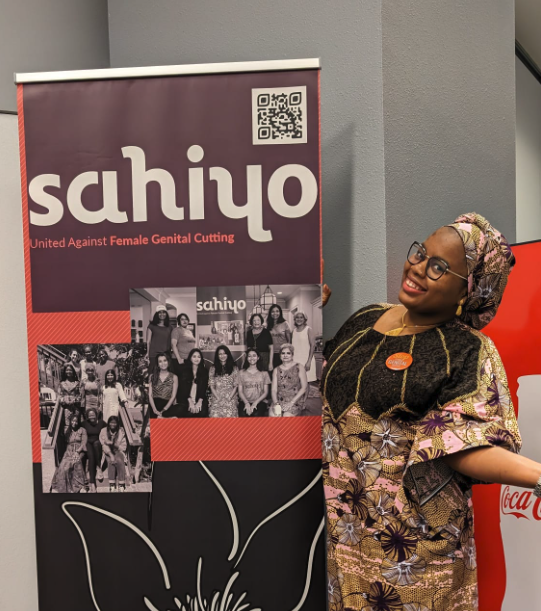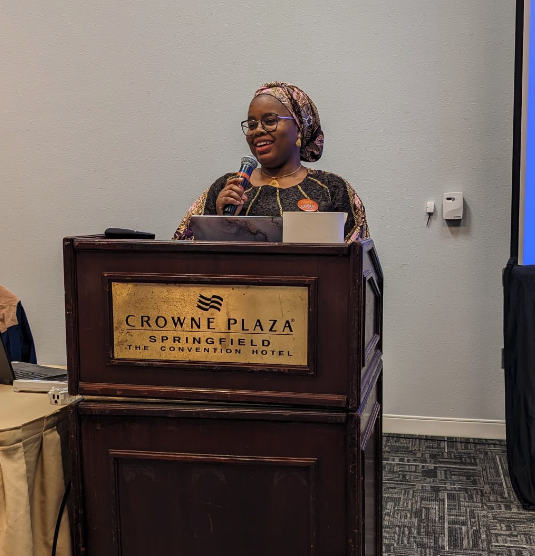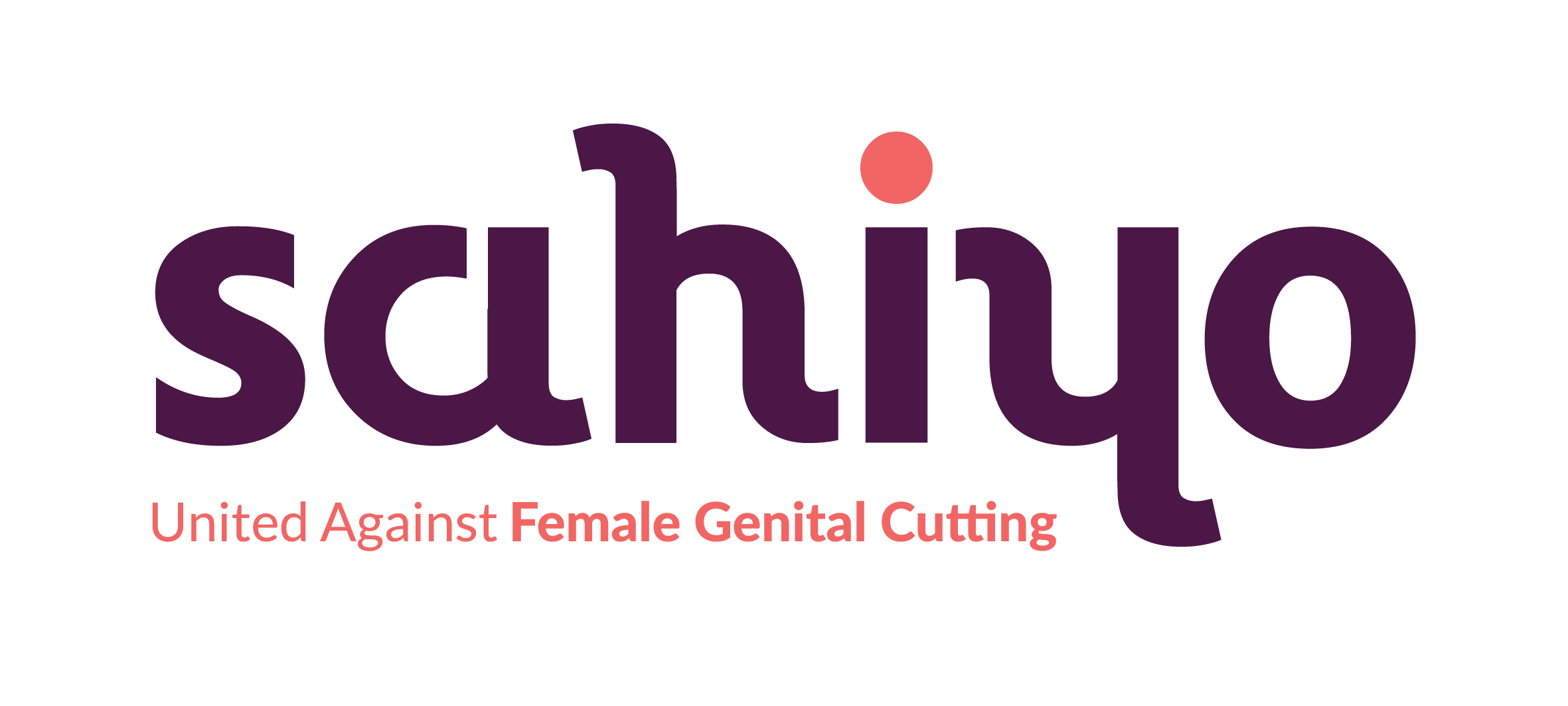By: Jumai Olumo-Saidu
Attending and presenting at the annual Illinois Coalition Against Sexual Assault (ICASA) conference in Springfield, Illinois, was a transformative experience. As a volunteer at Sahiyo and a second-year community psychology student at the National Louis University, I co-led an FGC 101 training session with Sahiyo's Training and Technical Assistance Coordinator, Aries Nuno to educate advocates working in the sexual assault and gender-based violence field on the topic of female genital cutting (FGC). This blog reflects on my experience, interactions with the audience, and the impact our FGC 101 training at this conference had on my personal and professional growth.
There were several moments during the FGC 101 presentation that stood out to me. The introduction to FGC, USA statistics, and the specific context of FGC, how it occurs, and who is impacted by it in Illinois all set the stage for a thought-provoking discussion. One memorable interaction was when a woman asked a question about balancing human rights with respecting cultural norms that have existed for generations. Her question highlighted the challenge of advocating against harmful practices without condemning entire cultures. This made me think deeply about approaching such sensitive topics without alienating the communities we aim to support.

Another memorable moment was when a participant asked about alternative ways to empower survivors of FGC. This question shifted the focus from condemning the practice to finding constructive and supportive ways to help those who are affected by it. This moment in the presentation reminded me that our work should not only aim to end the harmful practice of FGC but also to uplift and empower survivors.
The audience's reaction to the stories of survivors was also a significant part of the presentation. The room was filled with shock and discomfort, but also curiosity. The emotional response underscored the importance of our work and the need for continued education and advocacy around this issue. The audience's inquisitive questions highlighted the need for more awareness and understanding of FGC for the broader public, and even those working in fields related to FGC, such as human rights organizations, and those who work to fight against gender-based violence (GBV).
Professional and Personal Growth
This experience has had a profound impact on both my personal and professional life. Professionally, attending and participating in the conference reinforced the importance of cultural sensitivity and the need for a balanced approach when discussing FGC in my work. This experience also helped to emphasize the necessity of providing comprehensive resources and support for survivors. A prevalent myth is that FGC has health benefits, while in reality, it poses significant health risks, including chronic pain, infections, and complications in childbirth. The questions and comments from the audience offered valuable insights into such misconceptions and the gaps in knowledge about FGC that still exist today and need to be addressed.
Therapeutic Aspects
The conference was a therapeutic experience as well. Sharing the stories of survivors and discussing the nuances of FGC allowed me to process and reflect on the emotional weight of this work. It also reinforced my commitment to advocacy and education in this field. The supportive environment of the conference, combined with my colleagues and the audience's shared passion, created a sense of community and solidarity that was comforting and empowering.

It allowed me and the participants to voice the struggles and triumphs of advocating against FGC. The audience's engagement and the meaningful dialogue that ensued affirmed the importance of our efforts and the positive impact we can and do have on the world. This experience reminded me why I chose this path and reinvigorated my dedication to making a difference in this space.
Leading the FGC 101 training at the ICASA conference was a defining moment in my journey as a community psychology student and an advocate against FGC. The interactions and reactions from the audience were enlightening and underscored the critical need for continued education and advocacy on the practice. This experience not only contributed to my professional development but also provided a therapeutic outlet to process the emotional aspects of this work. As I move forward, I am more committed than ever to supporting survivors, educating others about FGC, and ensuring that cultural sensitivity and human rights remain at the forefront of our efforts to end this harmful practice.
Related links:
- Sahiyo Presents FGC 101 Training at ICASA’s Annual Conference
- Paving the Path to End FGC in Washington State! Year 1 in Review
- FGC 101 Training for Volunteers at Asian Women's Shelter

